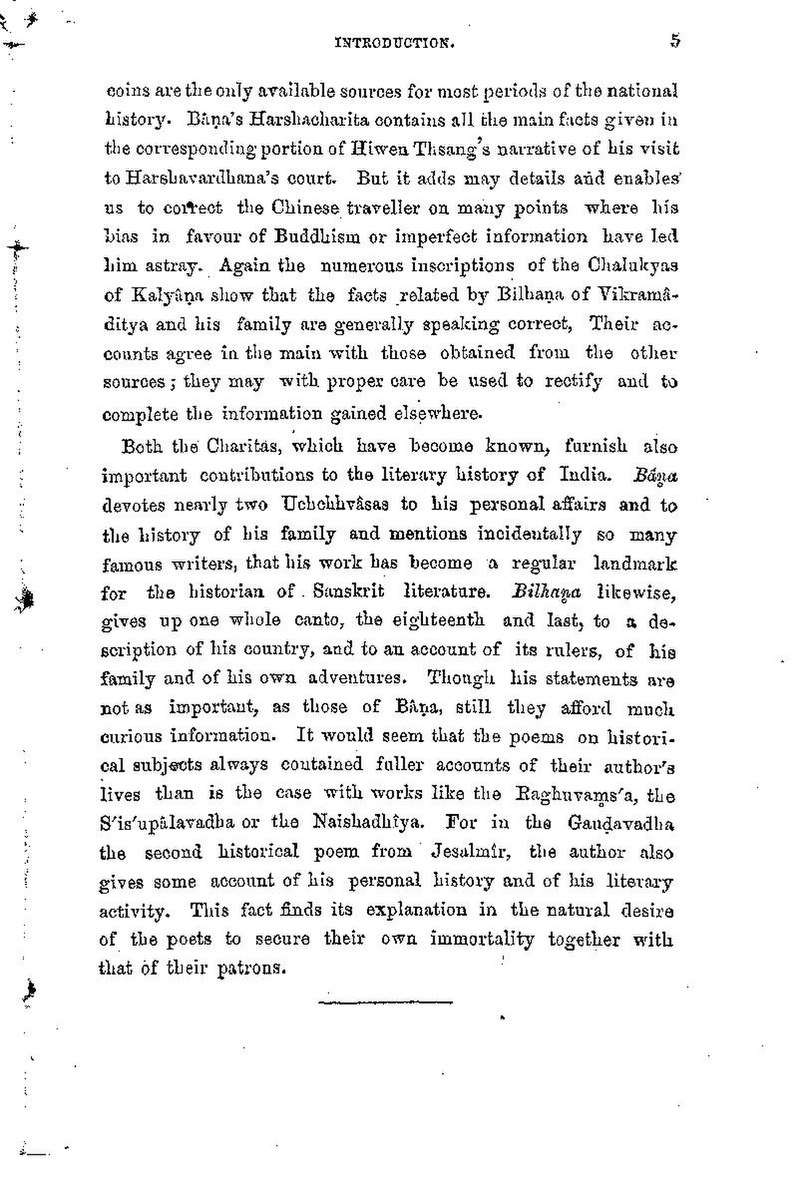INTRODUCTION.
5
coins are the only available sources for most periods of the national
history. Bana's Harshacharita contains all the main facts given in
the corresponding portion of Hiwen Thsang's narrative of his visit
to Harsbavardhana's court. But it adds may details and enables
us to correct the Chinese traveller on many points where his
bias in favour of Buddhism or imperfect information have led
him astray. Again the numerous inscriptions of the Chalukyas
of Kalyana show that the facts related by Bilhana of Vikrama-
ditya and his family are generally speaking correct, Their ac-
counts agree in the main with those obtained from the other
sources; they may with proper care be used to rectify and to
complete the information gained elsewhere.
Both the Charitás, which have become known, furnish also
important contributions to the literary history of India. Baga
devotes nearly two Uchchhvâsas to his personal affairs and to
the history of his family and mentions incidentally so many
famous writers, that his work has become a regular landmark
for the historian of Sanskrit literature. Bilhana likewise,
gives up one whole canto, the eighteenth and last, to a de-
scription of his country, and to an account of its rulers, of his
family and of his own adventures. Though his statements are
not as important, as those of Bapa, still they afford much
curious information. It would seem that the poems on histori-
cal subjects always coutained fuller accounts of their author's
lives than is the case with works like the Raghuvams'a, the
S'is'upalavadha or the Naishadhiya. For in the Gaudavadha
the second historical poem from Jesalmir, the author also
gives some account of his personal history and of his literary
activity. This fact finds its explanation in the natural desire
of the poets to secure their own immortality together with
that of their patrons.
पृष्ठम्:विक्रमाङ्कदेवचरितम् - बिल्हण.pdf/९
एतत् पृष्ठम् अपरिष्कृतम् अस्ति

